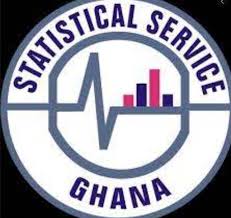Ghana’s economy depends on businesses of all types and sizes. From roadside vendors and small workshops to factories and service providers, each one plays a role in creating jobs, supporting livelihoods, and contributing to Ghana’s economy.
Without reliable information about how these businesses operate, grow, or struggle, it becomes difficult to design policies that responds to real needs or opportunities to support businesses.
That is why data matters in all sides of life. Economic growth is not just about investment or ambition. It requires a clear understanding of the systems and operations of enterprises that drive the economy forward. To do that well, we need factual and reliable data.
What IBES II Is and Why It Matters
The Ghana Statistical Service is carrying out the second phase of the Integrated Business Establishment Survey, known as IBES II.
This is one of the most extensive enterprise data collection exercises in Ghana’s recent history. Over 2000 trained officers are visiting more than 40,000 selected businesses across all 16 regions to gather up-to-date information.
The survey captures how businesses perform, where and how jobs are being created, how capital is being invested, and what challenges are holding firms back. IBES II includes both formal and informal enterprises across over 100 economic activity areas.
The information collected will feed into national indicators such as GDP, the Producer Price Index, and the Index of Industrial Production. It will also offer deeper insight into issues like informal employment, productivity gaps, and uneven regional development.
Aligning With National Priorities
IBES II comes at a time when Ghana is resetting its economic direction. Plans to operationalize a 24-hour economy, expand local manufacturing, and increase domestic revenue require more than broad targets. These visions need accurate, up-to-date evidence to guide its operationalization.
This survey will help identify which sectors can scale, what kind of support businesses need to operate beyond regular hours, and where digital tools are improving productivity. It will also provide the data needed to strengthen the MSME sector, which remains central to job creation and inclusive growth.
As Ghana works to reduce regional inequalities and formalize more of its economy, IBES II will offer evidence on where interventions are most needed. It connects directly to the goals of boosting spatial equity, expanding the tax base without overburdening businesses, and building a resilient private sector that drives sustainable development.
Why Business Participation Matters
The success of the survey depends on businesses being willing to take part. Their responses are protected by law and used strictly for statistical purposes. Enumerators have been trained to follow strict ethical guidelines, and quality control measures are in place at every stage.
For businesses, this is not just an administrative exercise. It is a chance to influence policy decisions that affect energy access, infrastructure, tax design, trade facilitation, and digital services. Their participation helps ensure that policies are based on real business conditions, not assumptions.
A Foundation for Better Policy
IBES II is part of a broader national agenda for investment planning with evidence. According to the Global Partnership for Sustainable Development Data (GPSDD), every dollar invested in statistical systems yields a return of up to 32 dollars. That is the value of getting decisions right the first time and avoiding the high cost of policies based on guesswork or outdated figures. The data collected will help government, development partners, and the private sector act with clarity and purpose.
Each business that takes part is contributing to a better-informed Ghana. Each completed interview also adds value to national planning. And each data point brings us closer to an
economy that is more productive, more inclusive, and better aligned with the realities on thenground.
IBES II, Data for prudent business decisions!!!
About the Ghana Statistical Service
The Ghana Statistical Service (GSS) provides comprehensive, reliable, quality, relevant, accurate and timely statistical information to guide national development as stipulated in Section 3 of the Statistical Service Act, 2019 (Act 1003).
The organisation’s vision is to be a trusted provider of official statistics for good governance and its mission being the efficient collection, production, management, and dissemination of quality official statistics based on international standards, using competent and motivated staff for evidence-based decision-making, in support of national development.
The Statistical Service produces monthly and quarterly data on important economic indicators such as inflation, Consumer Price Index, Producer Price Index, and Gross Domestic Product.
GSS also regularly generates periodic population, housing, demographic and economic data at the locality, district, and national levels from routine surveys and censuses.
The statistics generated by GSS can be utilised by a wide cross-section of users including public sector, businesses, academia, civil society organisations and development partners.
For more information visit www.statsghana.gov.gh.

